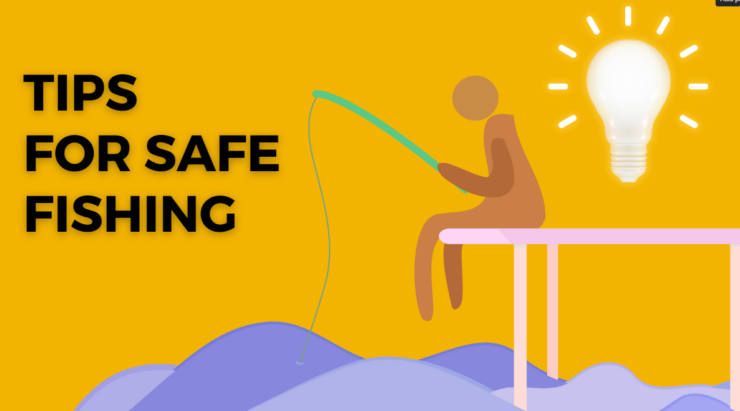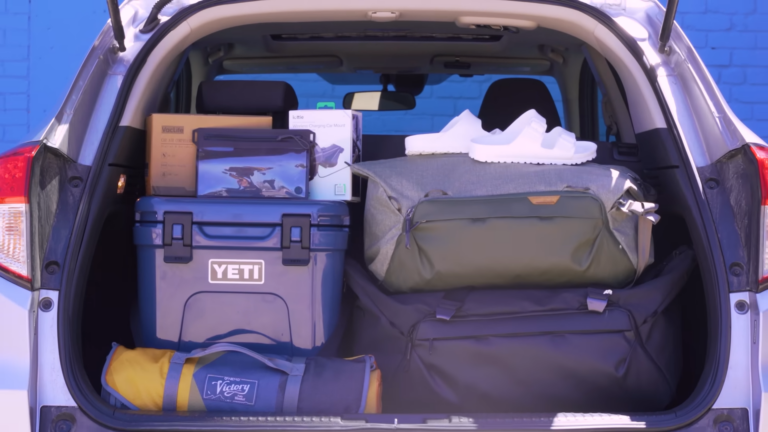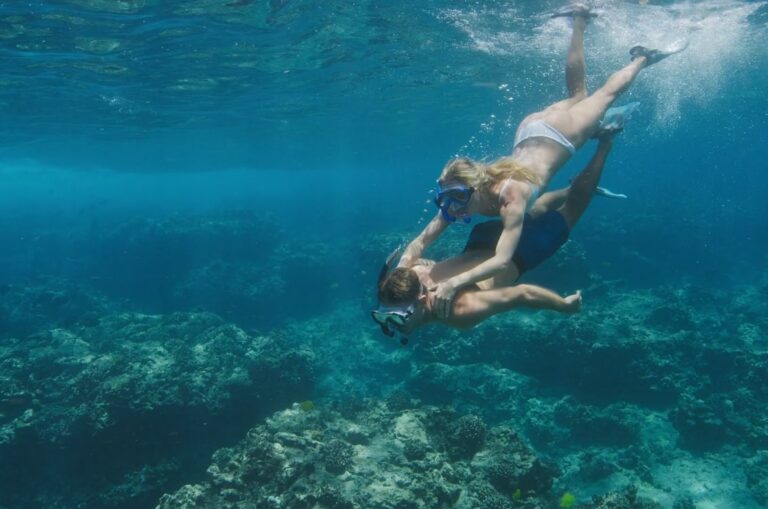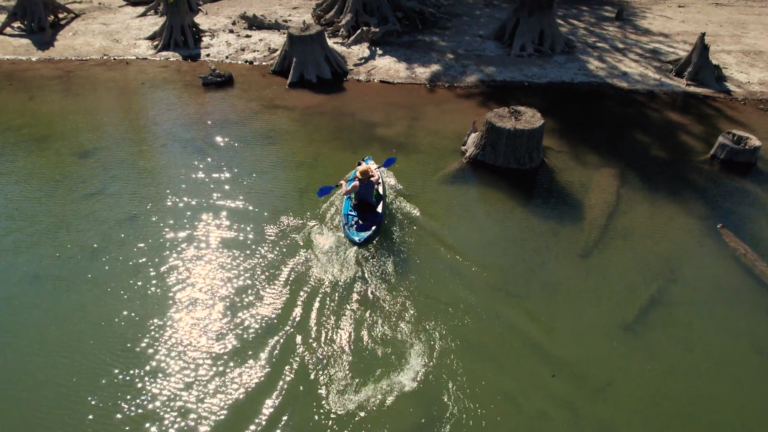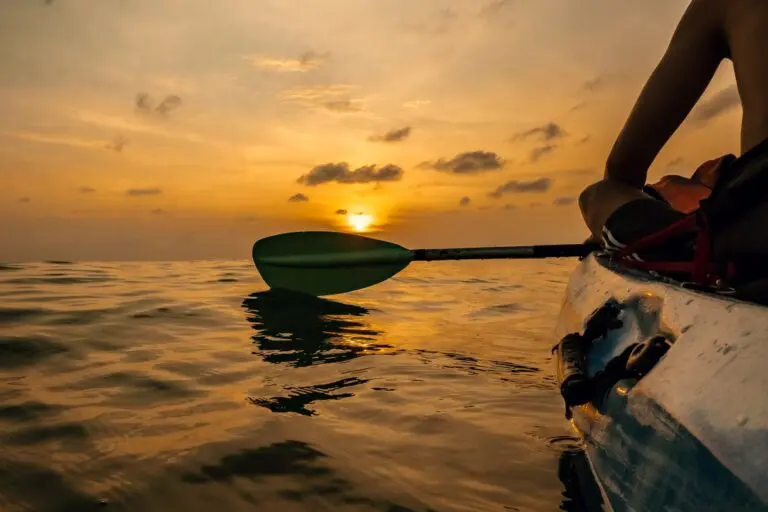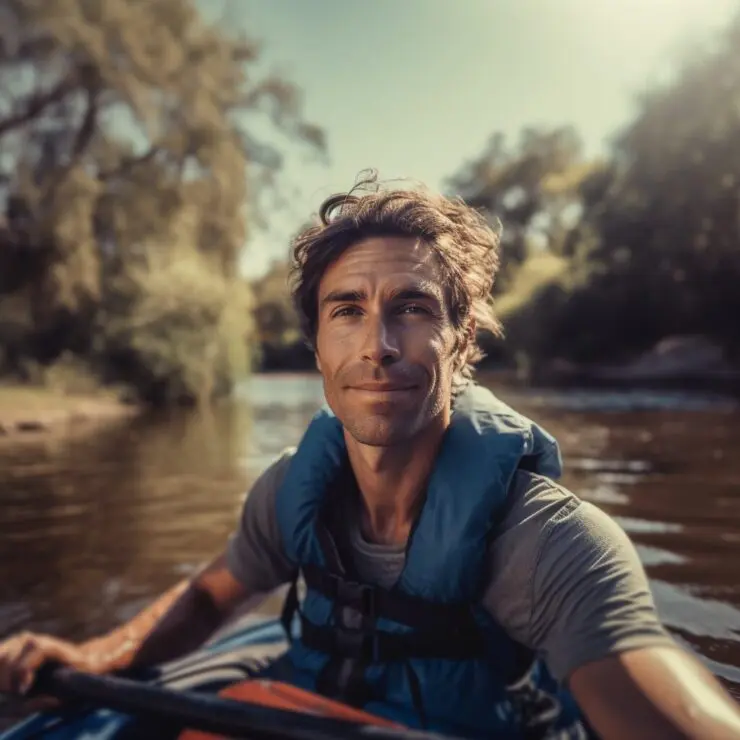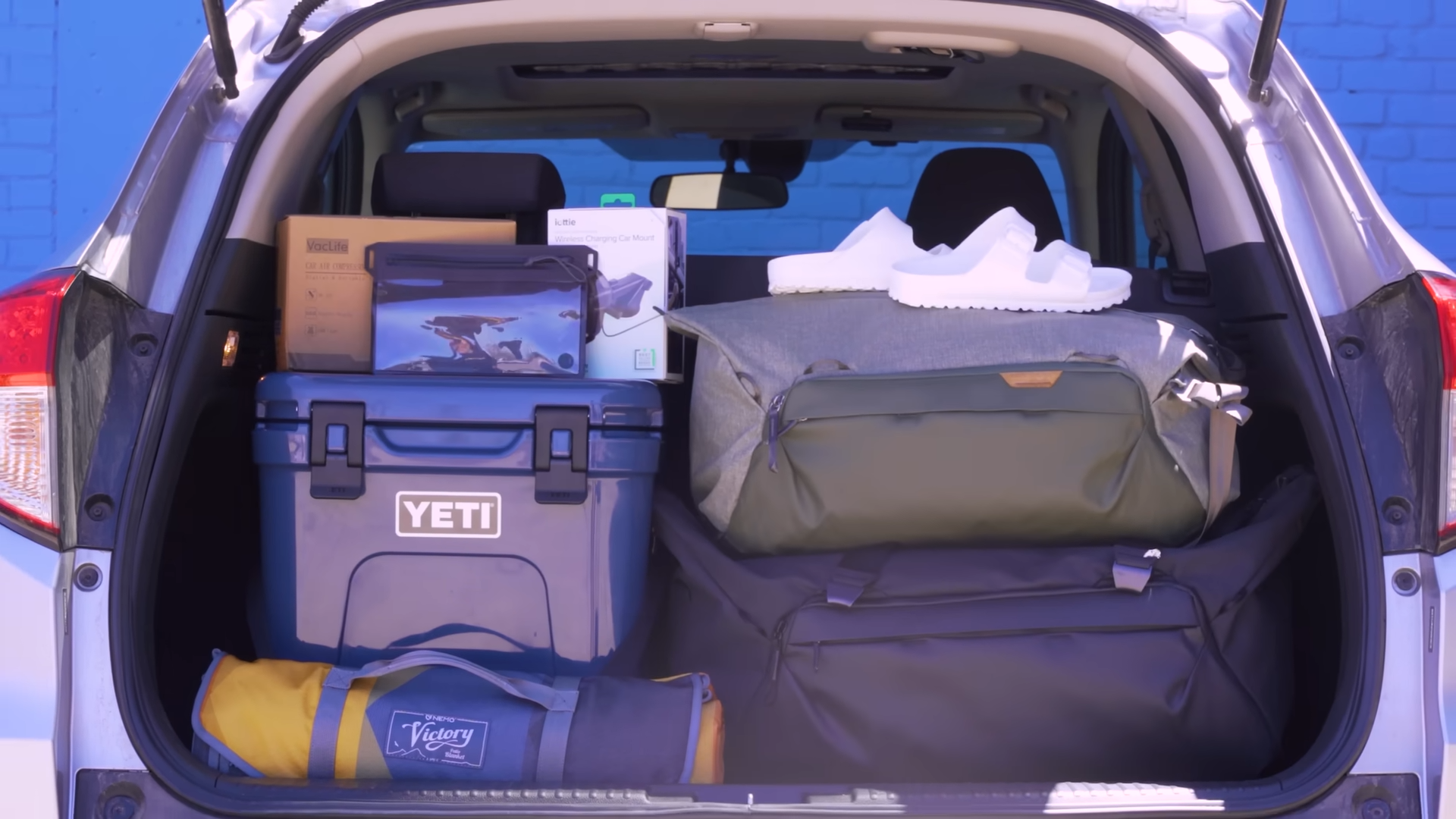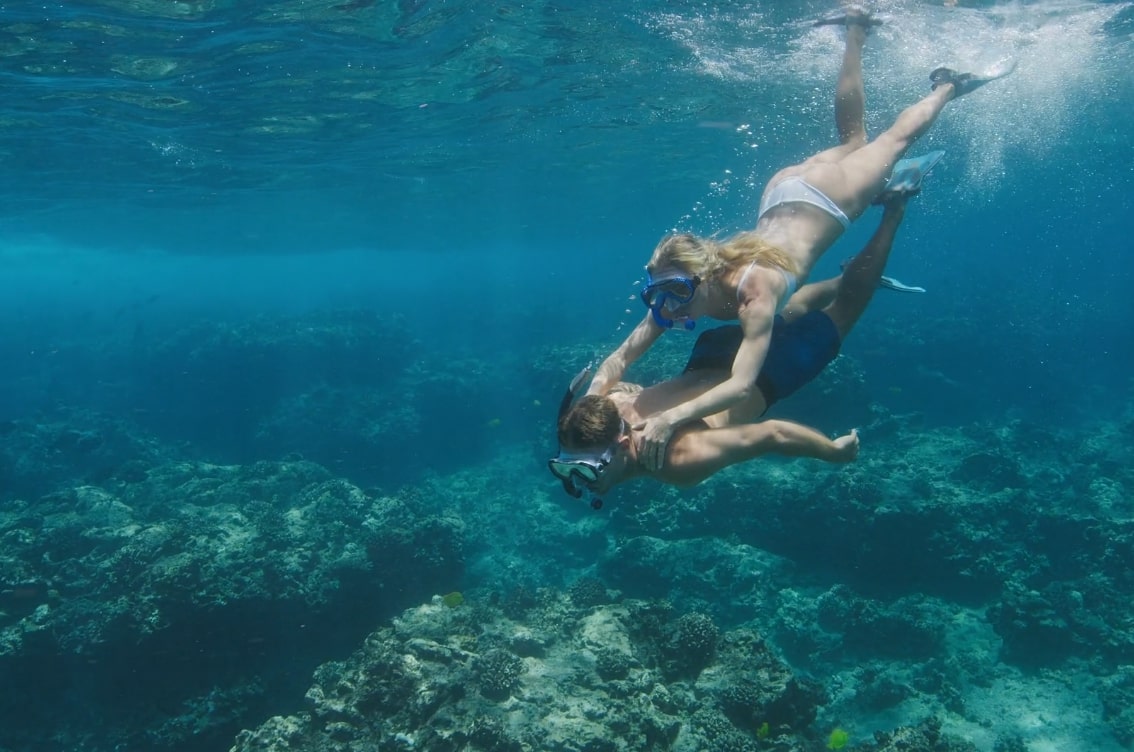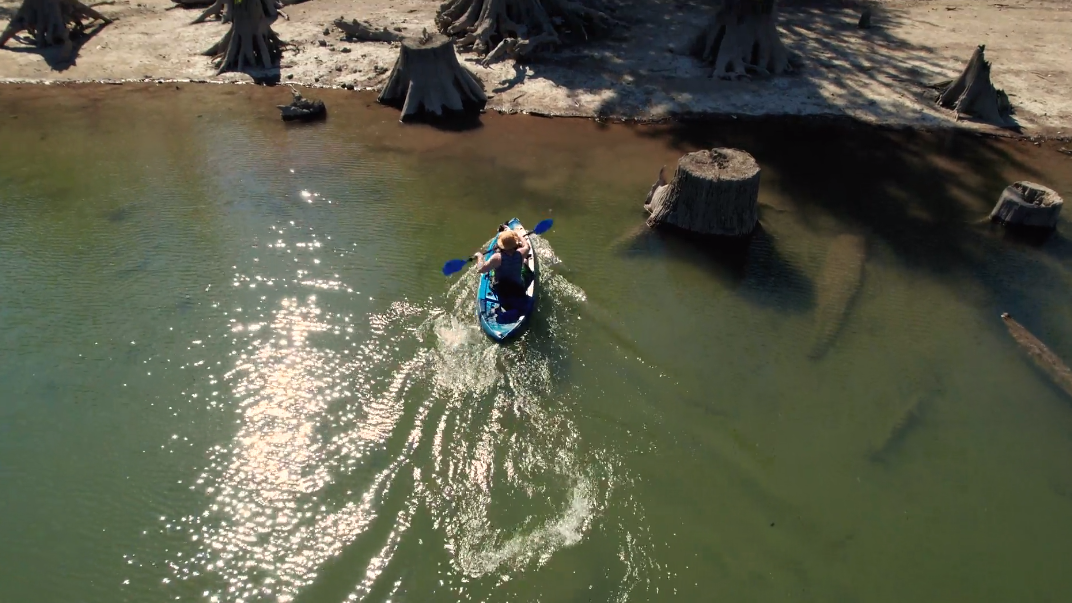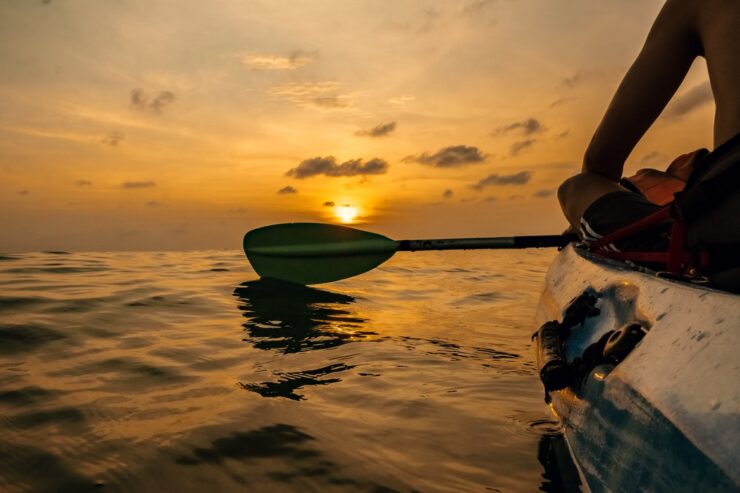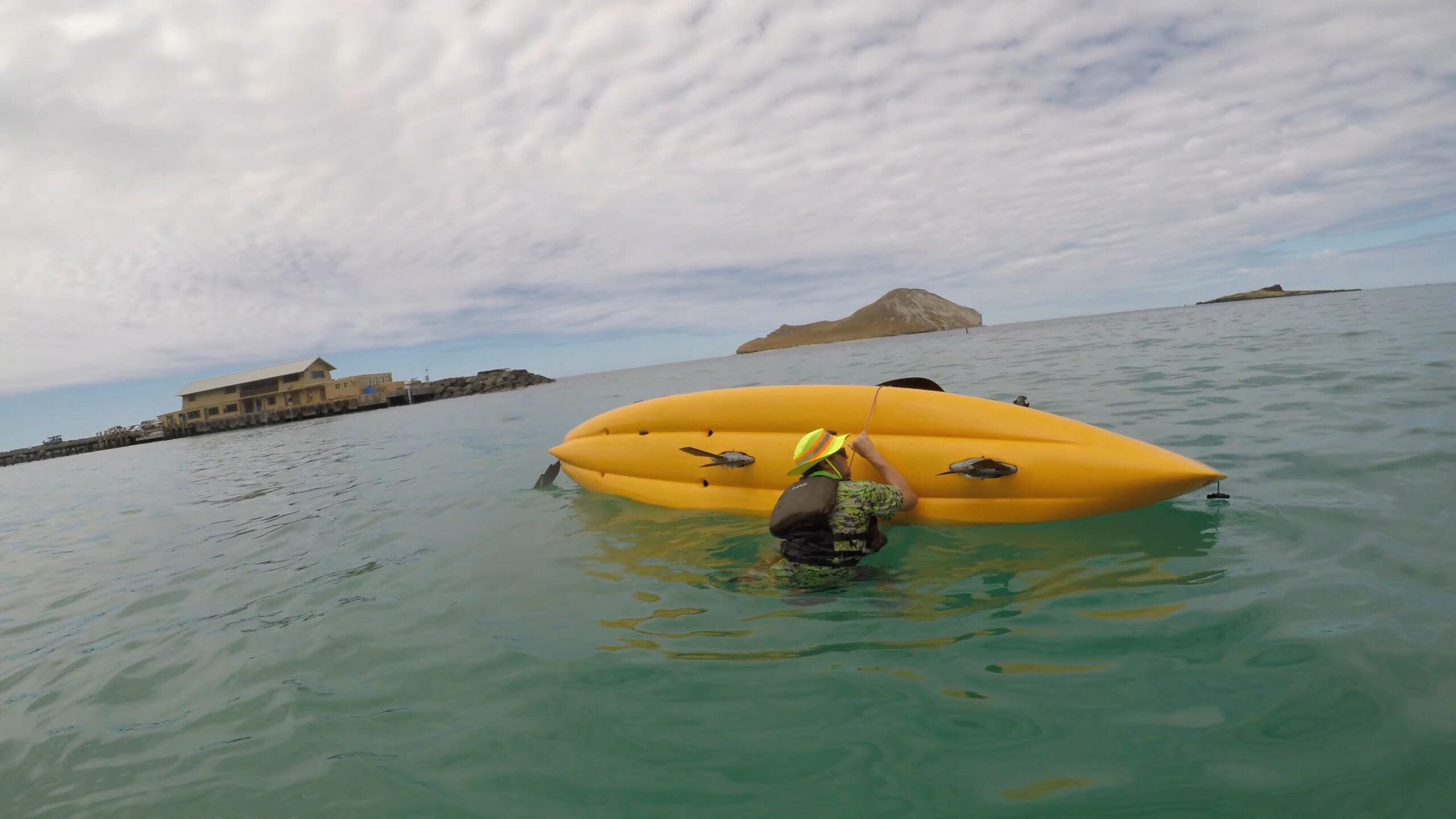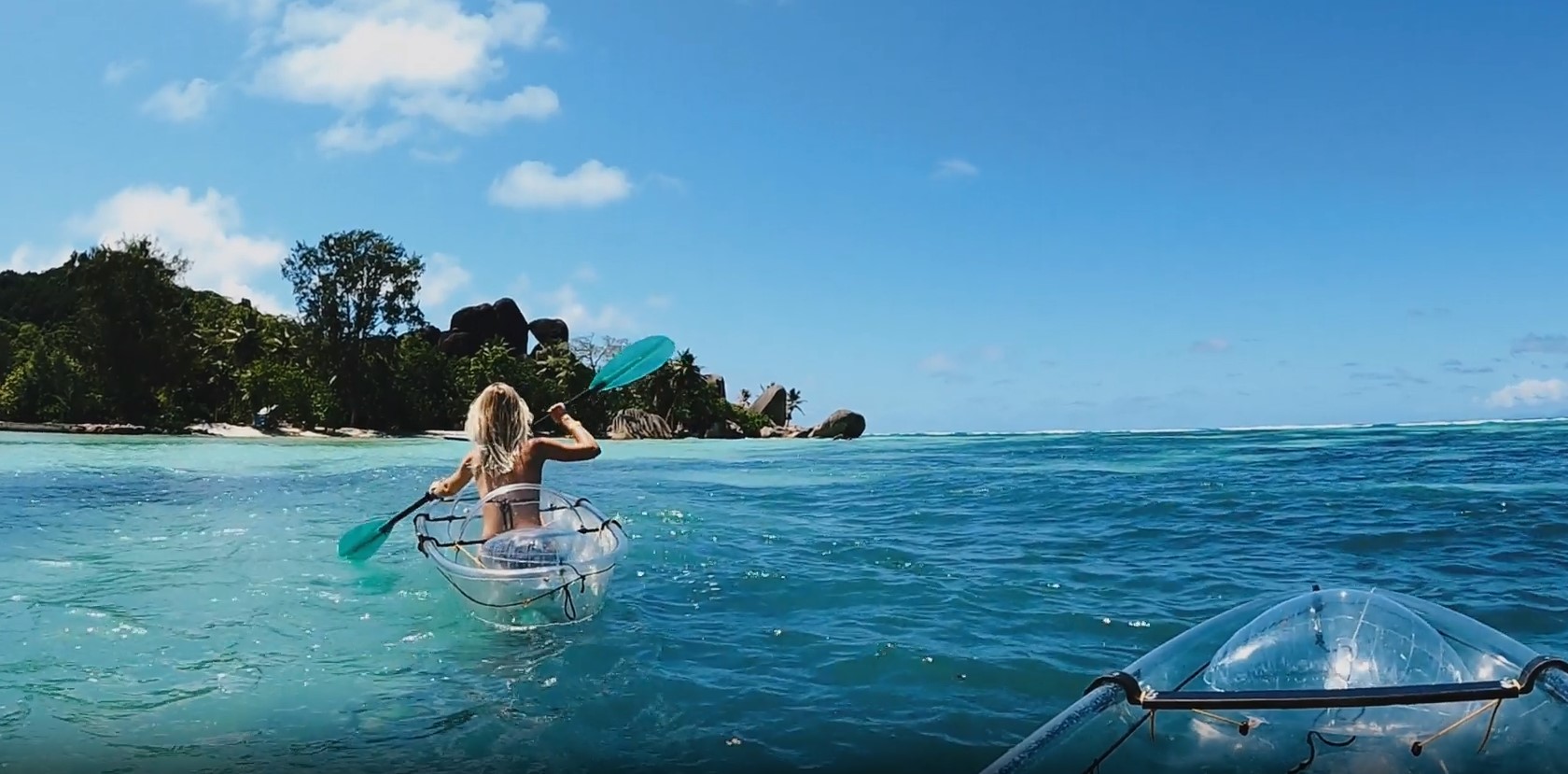What do fishermen need to make sure of when fishing as the weather turns?
Fishing is an activity that can be done year-round, but many say that it should not be. The fact that the weather outside does not always have to influence it is great, but only if you know how to stay safe. With that, useful tips go a long way.
There is a lot that can go wrong when you are simply out and about, let alone next to an unfamiliar body of water away from civilization, playing with sharp things and trying to catch water creatures.
And on top of that, some anglers do not mind going out in winter months when it is freezing cold, as well as in the spring when it does get warmer but there are many dangers as the seasons change. If you are to do this, you need to know how to protect yourself.
Table of Contents
ToggleStaying Safe While Fishing
Being fond of a certain activity usually means wanting to do it all the time. Regardless of the time of year, the conditions outside, or the schedule of responsibilities, chasing free time to do a hobby is always present. This is how things should be, but with fishing there are rules.
Before moving on to tips regarding winter and spring times, there are a few things that should be said about general fishing safety. For example, you should never leave your home for some fishing fun without a survival kit and the first aid kit. Both of these can come in waterproof cases and boxes.
A fishing survival kit is an all-in-one box of everything a fisherman needs for a day out catching fish. They typically include a variety of flies, hooks, leaders, and jigs. They can also contain crappie nibbles, split shots, fishing lines, and bobbers. Of course, there is a knife in there as well as instructions.
When it comes to first aid, there are specific fishing-friendly ones but any first aid kit will do. You need bandaids, bandages, gauze rolls, alcohol, antibiotic creams or ointments, antiseptic wipes ibuprofen or aspirin, and all the other things that can help with cuts, burns, bruises, etc.
Fishing in the Winter
Cold-weather fishing can legitimately be considered an extreme sport due to how dangerous it could prove to be. There are many dangers in the cold even without doing a physically and mentally demanding activity. The fact that you are outside with little cover and near the water only further complicates things.
1. Dress Properly
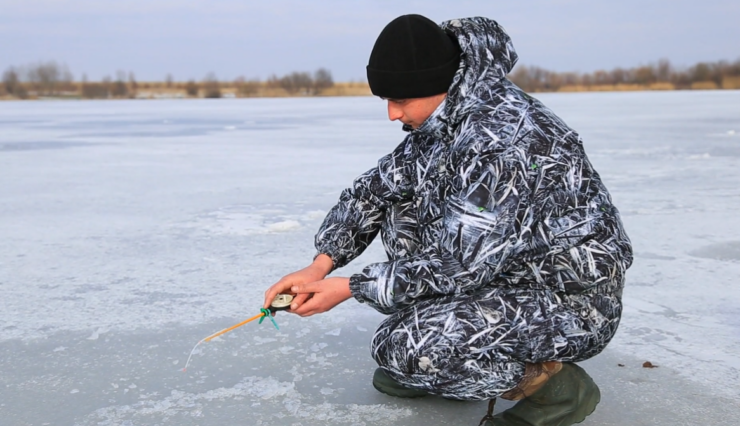
Never underestimate the cold away from the town or city you live in. It is always colder out in nature than it is in your community. You need multiple layers of clothes as well as an extra set of clothes in case you get wet or just need more. Dressing for the weather and not for the water temperature is key, as many anglers make this mistake.
When it comes to the actual clothing items you need, having layers means at least three separate things on the upper body and two on the lower. For example, a winter jacket over a hoodie or a jumper, under which there is a lighter shirt.
Winter pants should be worn over warmers or underpants. Make sure you have thicker and warmer socks and hiking shoes/boots that can handle both water and cold. Definitely bring warm gloves and hand warmers.
Wear a cap and bring a pair of glasses in case it is too windy. Your jacket needs to have a hood. You will be in danger in case it starts raining or snowing and most of your clothes is not waterproof. A raincoat or a cloak nearby will be of great help.
If you are so daring to go kayak fishing in the winter, waterproof clothes are a must, your kayak must have a waterproof skirt, and you must always wear a life jacket.
2. Have a Heat Source
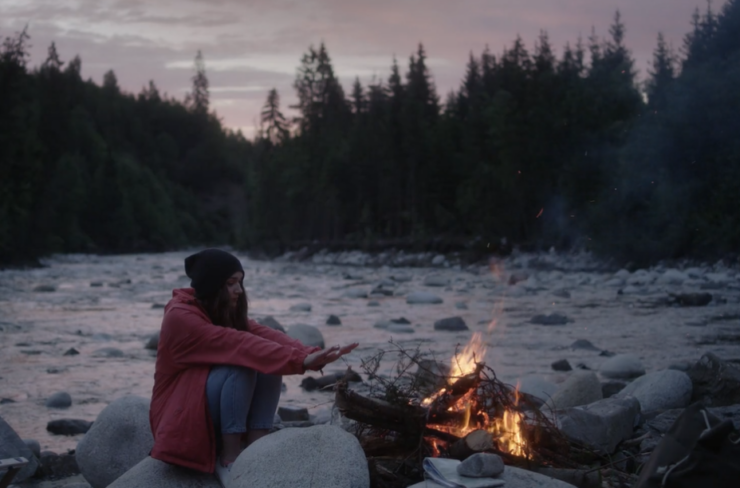
This a no-brainer, but many anglers simply forget to provide heat for themselves or their party when they decide to go fishing in winter. Accepting the fact that you will probably get cold and miserable does not mean you should not provide heat.
Being warm does more than just keep us from freezing. It is comforting and reassuring, it can help with preparing food and beverages and dry clothes. As soon as you get to the location, a fire should be started.
Do not make the mistake of thinking that fires cannot be started in cold, snowy conditions. All you need is some dry wood, paper, some fire fuel, and a match or a lighter. All of this you can bring from home and you should.
Tent warmers are another great option to have, and you do not even need a tent. There are heaters meant for camping and adventuring that use all sorts of fuel, from batteries to gas. A small propane tank can be a lifesaver and it is a must in any winter fishing scenario.
3. Use the Sunshine
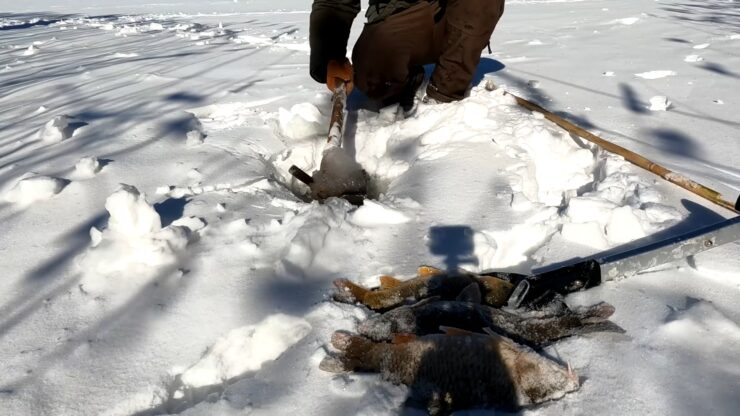
There will not be plenty of it, but use areas where there is sunlight to your advantage. Some heat is better than no heat. It is also the brightest in the sun and it will not be for long during short winter days. While you are hiding away from it in late spring and early summer, the sun and its heat can be a significant factor when cold-weather fishing.
4. Never Go Alone
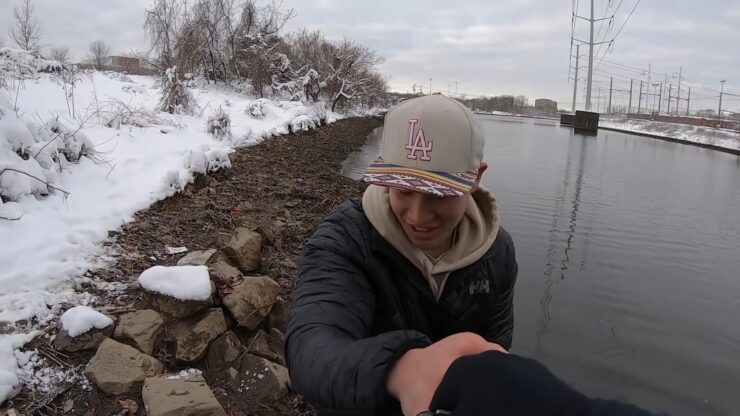
This is a rule of thumb for cold-weather fishing. Try not to go alone and always bring a buddy. It is extremely difficult to handle yourself in the winter months while fishing. Most anglers go with someone anyway, let alone when there are extra dangers to be combated. Fishing is more fun when shared with like-minded enthusiasts as there can be some healthy competition and banter along the way.
Fishing in the Spring
You may be wondering why spring fishing is here with winter when it is a joyous season practically made to enjoy nature. Well, the great outdoors are treacherous and spring does come after winter which can be colder and prolong its effects onto March and April.
1. Beware of High Water Levels
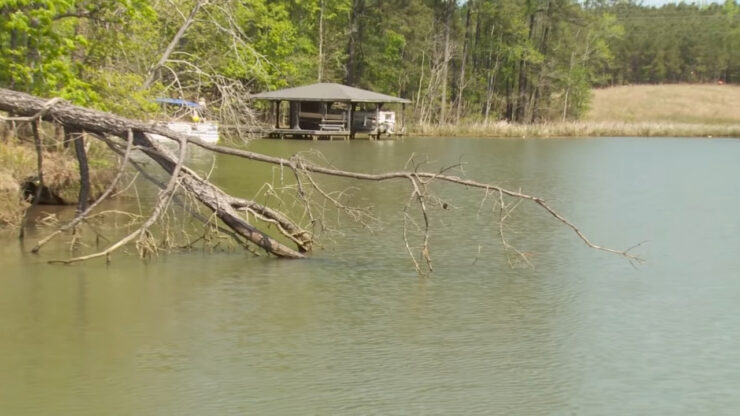
The most dangerous thing regarding springtime fishing is higher water levels. This of course happens due to more water coming down the mountains and into the streams and rivers when the snow starts melting.
Rivers are higher and wider, shores are different than what you may know, and seemingly dry land may be too wet and soggy. Getting stuck in the mud is a nightmare and your day will be ruined. Water may be deeper than it seems so stepping in and fishing is dangerous.
2. Protect Yourself Against the More Active Wildlife
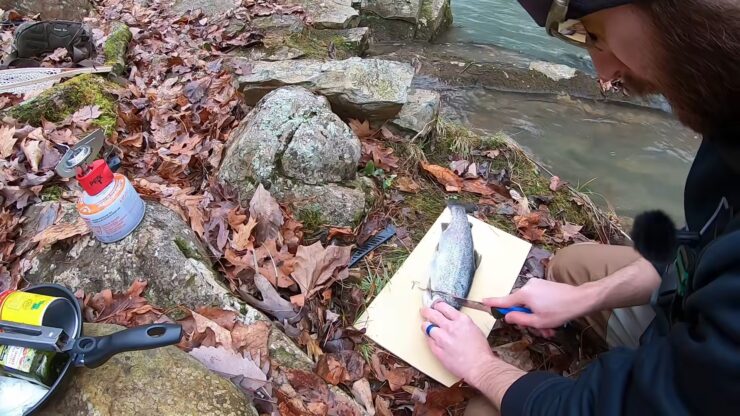
Now that the winter is gone, there will be more wild animals roaming around, including those that could harm you and spook you. Take preventative measures and be sure you are in a clearing from where you can spot a fox, a wolf, or even a bear before they spot you.
This is rare but still a possibility, especially after rough winters when there was not much food to go around in the wild.
3. Extra Carefulness When Kayaking
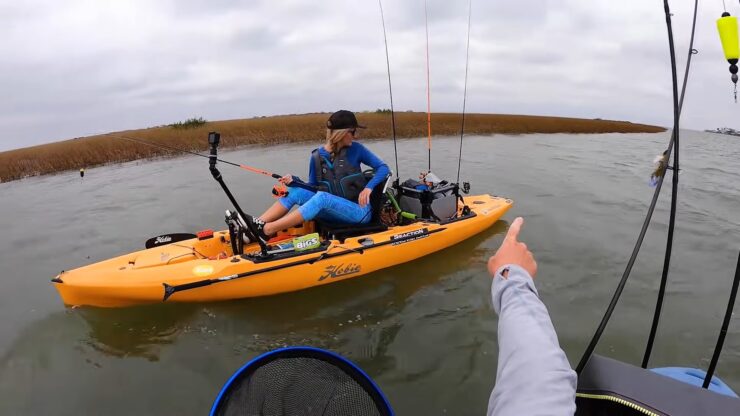
If you are boating when fishing, especially in a paddling fishing kayak, you have to remember that the waters are faster and deeper this time of year. This means beginner and amateur kayakers will have a rough time handling the currents and waves, especially up in the mountains where there is frequent whitewater.
Kayak fishing is a great way to get out there and be close to the fish, but it is also dangerous if you are not careful. You need a stable kayak for these few months, one that will not easily capsize when the waters get rougher and with enough gadgets and accessories to allow you to be safer. Always wear a lifevest and do not go alone.
4. Sun Protection is Key
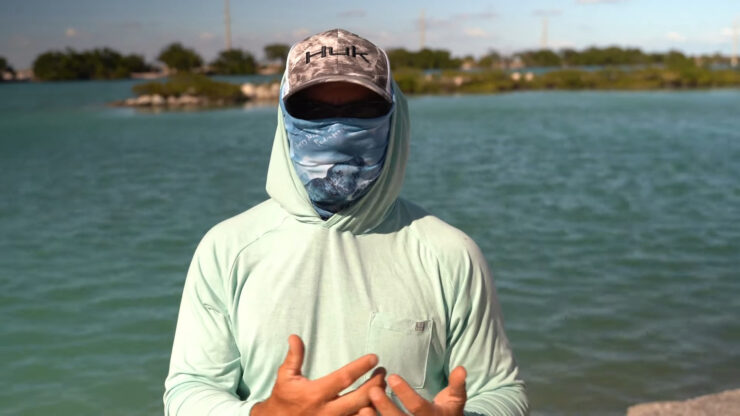
While it may not be summer yet, the sun can harm you nonetheless especially higher in the hills and mountains. You can still get sunburns in April, especially in May and early June when the sun is gaining strength and the days are considerably longer.
Carry sun protection products, use sunglasses, and wear a cap. These combined are more than enough to stay secure from the sun while fishing for the whole day. A light long sleeve T-shirt may also be a better option than something sleeveless for the exact same reason.
5. Mosquitos and Bugs
A huge hindrance when the weather starts getting better and when conditions are becoming more enjoyable are the intrusive insects. Mosquitos are particularly annoying and they can take the joy out of a day of fishing in a heartbeat.
Other insects, often more dangerous than the pesky blood-sucking fliers, may also be around. You should always have some sort of insect repellents like sprays or creams to apply both to yourself and the surroundings. It will make things more enjoyable and your whole party will thank you.
Meet Maria Alexander, the fearless adventurer steering the ship at KayakPaddling.net. Her mission? To convince you that life’s too short for dry land and that the best stories always start with “So there I was in my kayak…”
Related Posts:
- Heavy Duty Fishing: 11 Best Rods And Reels For Big Fish 2024
- 16 Best Kayak For Beginners 2024 - Kayaking Adventure Gear
- 15 Best Baitcasting Reel Under $100 2024 - Improve…
- 17 Best Trolling Reels 2024 - Enjoy your Fishing Adventure
- 10 Best Fishing Kayak Under $1000 2024 -…
- 20 Best Inshore Spinning Reels 2024 - Capturing All…

